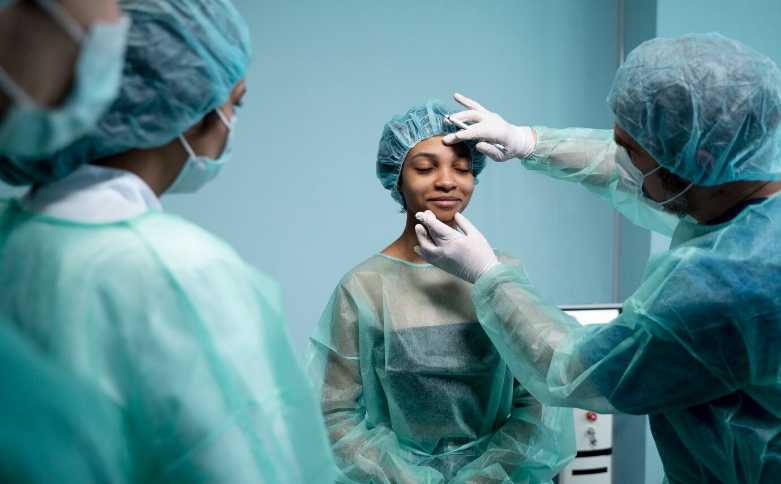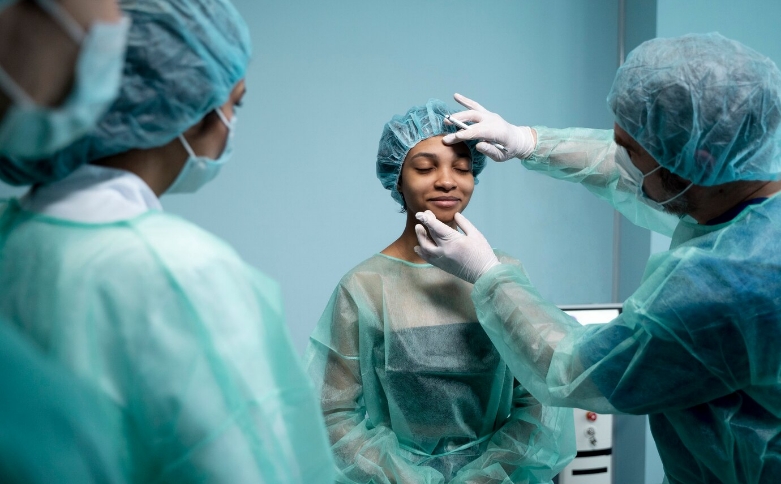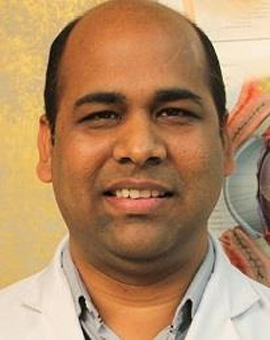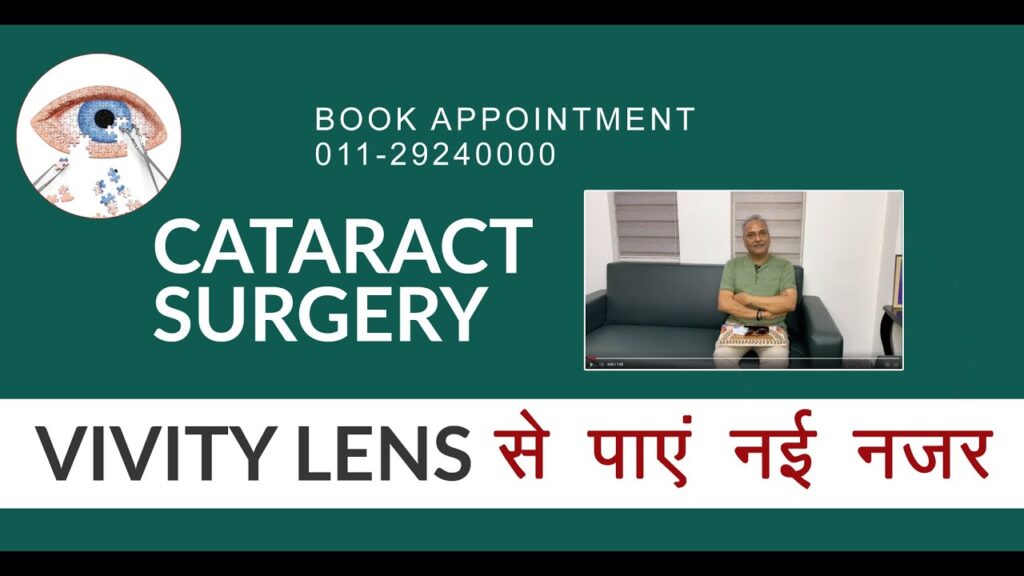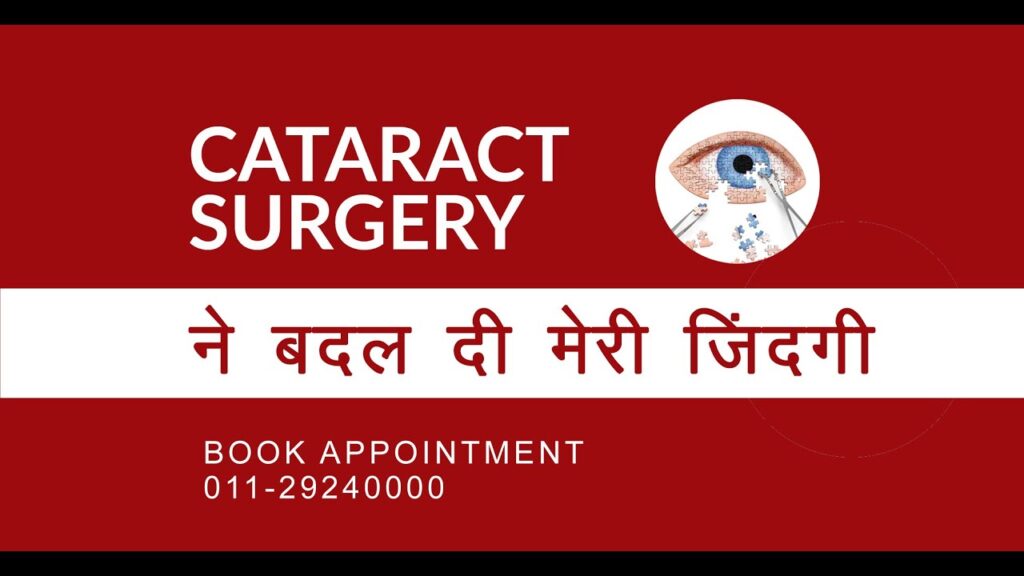Cataract Eye Surgery
Best Cataract Lens Surgery Surgeons in Delhi, Bharti Eye Hospital is considered among the Top Motiyabind Operation Eye Hospital in Delhi NCR, Greater Kailash, Patel Nagar, Okhla, Dwarka, and all over India owing to its quality Motiabind Surgery services at affordable cost. Our dedicated team of Motiyabind Eye Surgery Specialists makes us well-poised to emerge as the famous doctors for Motiyabind Eye treatment in Delhi!
PHACO-EMULSIFICATION for no-injection, no-stitch, no-bandage cataract surgery is another field where Bharti Eye Hospital is a leading centre in the country. Dr. S. Bharti is the first surgeon in Delhi to begin eye drop anaesthesia for phaco-cataract surgery in 1997. Bharti Eye Hospital was the first to acquire the Sovereign Phaco Machine and Zeiss IOL master in the Asia Pacific for excellence in this field.
How do you come to know when you get cataract?
- Glare Becomes Painful For Your Eyes
- Blurred Vision
- Reading Vision Becomes Poor

How do you come to know when you get cataract?
As we start ageing, our eyes become weaker. You will find that most people would associate cataract with ageing. That’s not entirely true! Cataract could also be caused by injuries.
Alcon Legacy and Nidek CV7000 are other phaco-emulsification systems available at Bharti Eye Hospital now to complete the full range of latest technology. Bharti Eye Hospital is also running a Phaco Training Academy under the able guidance of Dr.S.Bharti since 1998 initiated with the help of Allergan India Ltd. and has the distinction of training many eye surgeons in this field.
What is Cataract
Cataract (in hindi is known as safed motia or motiabind) is an opacification or whitening of the natural clear lens. It occurs most commonly with age (onset usually after 5th-6th decade) it can occur earlier in diabetics and patients with inflammatory conditions such as rheumatoid arthritis. It can even occur in babies and small children where it is called congenital cataract. Traumatic cataract occurs after injury to the eye.
Symptoms Of Cataract
- Blurring of vision in daylight – glare
- Seeing haloes around light
- Frequent change in glasses
- Blurring of vision in dim light
- Difficulty in reading and doing other fine tasks
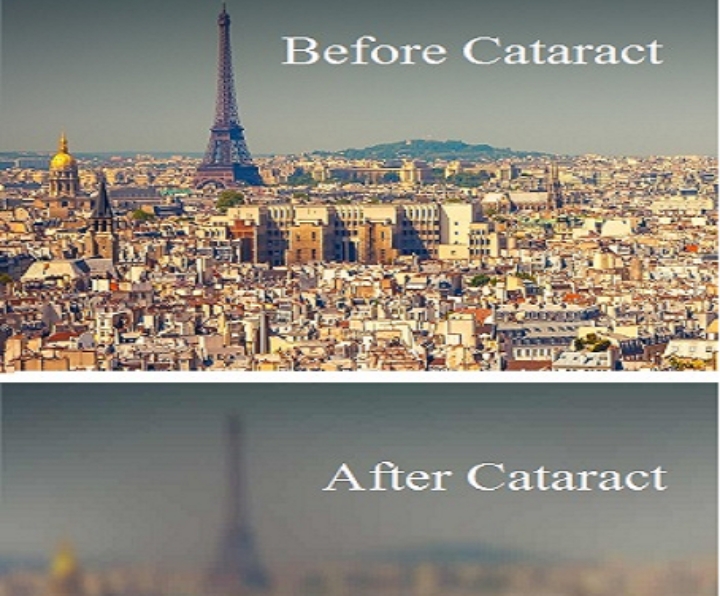
Treatment of Cataract
Treatment of cataract is surgical removal of the Cataractous Lens. There is no drug or diet available for reducing cataract. The progress of cataract is different in different people and though in some it progresses rapidly and causes vision disturbances , in other people it may take many years to progress.
Methods of Cataract Surgery
The old system of cataract surgery involved injection around the eye, making the surrounding area and the eye numb, making a large incision (cut) of 12 to 13 mm and taking out the cataract through this incision in one piece (intracapsular) or just the central nucleus leaving behind the outer covering (the capsule) in which a intraocular lens could be fixed. The large incision was then closed with stitches. The eye was then bandaged for a period of one day or more. The visual recovery in these cases took upto 6 weeks and sometimes removal of stitches was required for complete recovery of vision.
Latest surgical techniques for Motiabind operation used at Bharti eye hospital
Cataract surgery is a daycare procedure in which cataract lens is removed and replaced with artificial intraocular lens. This surgery is done to restore patients vision which is compromised due to cloudiness of the natural lens. Phacoemulsification, Femto laser cataract surgery and Zepto laser cataract surgery are commonly used techniques at Bharti Eye Hospital.
Femtosecond Laser Assisted Cataract Surgery (FLACS) or laser cataract surgery includes the following :
The Corneal Incision
In tradition phacoemulsification blade is used to make incisions in the cornea to perform surgery, but in femtosecond laser system blade is not used and all the cuts are made by laser itself. Laser cuts are superior than manual cuts and provide better wound healing after the surgery.
The Anterior Capsulotomy
This is a very crucial step in performing cataract surgery. Lens is enclosed in a transparent bag and for removing the lens that capsular bag has to be opened. This opening is made with forceps or needle in phacoemulsification. In laser cataract surgery this step is performed by laser itself.
Lens Or Cataract Fragmentation
In phacoemulsification lens is broken into multiple pieces manually but in laser cataract surgery lens is broken in small pieces with the help of femtosecond laser.
The added precision, accuracy and reproducibility of each of these steps helps in achieving better outcome in laser cataract surgery.
Zepto Cataract Surgery
It is the latest advancement in automated surgery which uses the Zepto Capsulotomy device to give better results in certain complex cases like children with cataract etc.
Cataract Surgery Cost in Delhi
The cost for surgery depends solely on the technology used for performing the cataract surgery, intraocular lens implanted in the eye and the skill and experience of the surgeon. Cost of treatment for insurance patients are different from non insured patients. Cost for government panel patients is entirely different.
Best Eye Hospital in India for Cataract Surgery
Bharti Eye Hospital, New Delhi is one of the leading eye hospitals in Delhi as well as in the country. Our hospital is equipped with the most advanced phacoemulsification and laser machines for cataract surgery. The experienced team of cataract surgeons at our hospital is highly experienced and qualified to manage all sorts of cataract surgeries.
The cataract surgery performed at Bharti Eye Hospital is painless, stitchless and without injection. It’s a daycare procedure and does not require hospital admission. Surgery time is approximately 15 minutes. Patients start seeing the very next day. From the very next day after the surgery patient can perform normal daily activities like watching TV, mobile phones and reading books. All the government panels and insurance companies are empanelled with Bharti Eye hospital.
Best Cataract Surgeons in Delhi at Bharti Eye Hospital
At Bharti Eye Hospital all the cataract surgeons are well trained and having a vast experience in performing safe and best cataract surgery. All the surgeons at Bharti eye are capable of performing topical anesthesia cataract surgery that does not require any injections in the eye.
Frequently Asked Questions About Cataract Surgery
Cataract is a cloudiness of the natural lens of the eye, which leads to decrease in vision.
There are various causes of cataract. Most common causes of cataract is age related cataract. Almost everyone gets cataract in their 6th or 7th decade of life. Other causes of cataract are trauma or injury to the eye, chronic steroid use and sometimes cataract is present by birth.
The most common symptoms of cataract are decrease in distance vision, improvement in near vision, double vision.
The right time for cataract surgery differ from person to person and their need for good vision. It is advisable that when patient is unable to perform his daily routine work with glasses or the quality of vision is not good then that is the right time to discuss about cataract surgery with your eye doctor.
Tests required before cataract surgery are blood sugar levels, hemogram. Apart from blood tests lens power measurement is also done.
YES, Astigmatism or cylindrical numbers correction is possible with Toric intraocular lenses.
Cataract surgery is one of the safest eye surgery. Success rates are very high. A good experience surgeon can give good results in almost every case of cataract surgery unless some pre existing pathology is co-existing along with cataract in the eye.
Recovery is very fast post cataract surgery. Patient usually start seeing the very next day and achieve very good vision by the end of the first week.
Need of glasses totally depends on preexisting glass number and type of lens implanted during surgery. Monofocal lens are for distance vision so if a patient choose monofocal lens during surgery then he has to use glasses for near vision. If the patient chooses trifocal IOL for surgery, then need for glass use is almost negligible.
After cataract surgery sometimes a thick fibrous membrane develops at the back surface of the lens which leads to decrease in vision. The treatment of posterior capsular opacification is YAG laser procedure. This is a very quick and effective procedure and done in OPD settings.
Video Testimonial
- Cataract Surgery Patient - Vivity Lens से पाएं नई नजर
- Cataract Surgery ने बदल दी मेरी जिंदगी - Bharti Eye Hospital, Delhi

